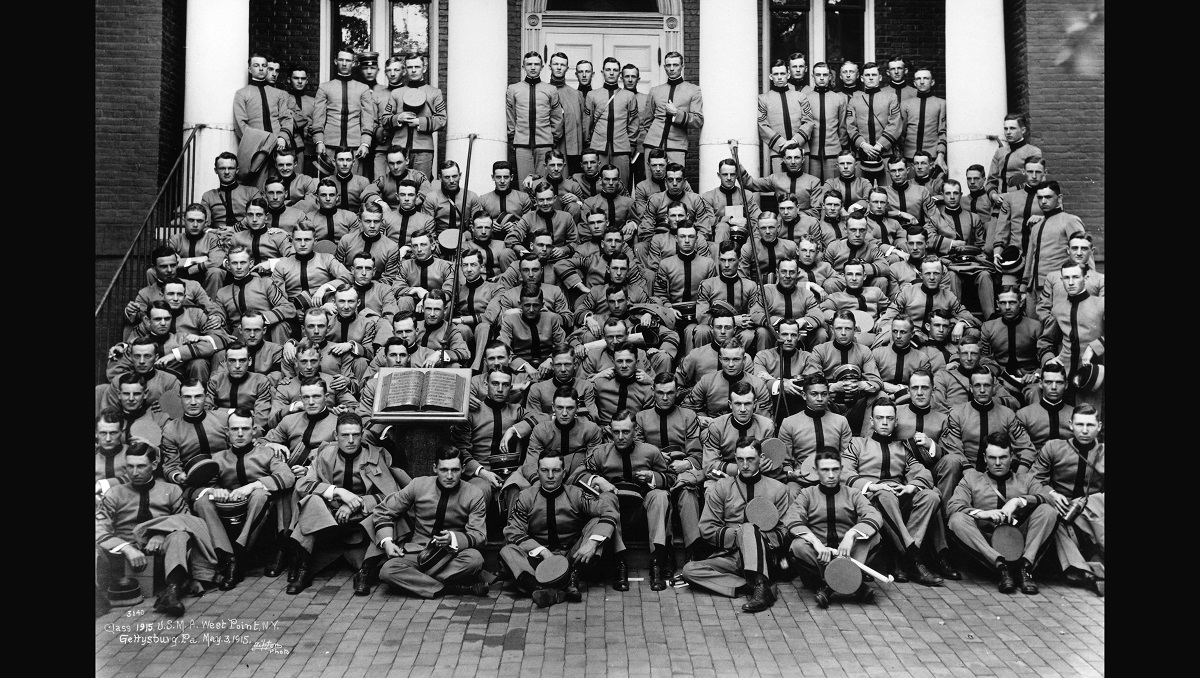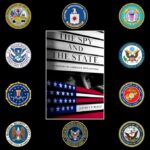
It’s time once again to feature some of the smart conversations that occur around the country through the Eisenhower Series College Program. For over 50 years, the Eisenhower Program has reached out to colleges and town halls across the nation to introduce War College students to audiences that are often unfamiliar with members of the U.S. military. In this episode, two senior Army officers share their personal and professional experiences with the diversity, equity and inclusion policies of the U.S. Army. Kirk Daniels and Dena Goble are in the virtual studio with podcast host Ron Granieri. Their conversation ranges in topic from “Don’t Ask, Don’t Tell”—its inception and its end—to frank and honest conversations with leaders and supervisors and the many positive aspects of a diverse force that represents the nation it defends.
When we bring in people with diverse backgrounds and demographic diversity, whatever it might be, we bring in different ideas for ways to solve problems or address situations that we might not other otherwise have access to.
Podcast: Download
Subscribe: Apple Podcasts | Spotify | Amazon Music | Android | Pandora | iHeartRadio | Blubrry | Podchaser | Podcast Index | TuneIn | Deezer | Youtube Music | RSS | Subscribe to A Better Peace: The War Room Podcast
Kirk Daniels is a lieutenant colonel in the U.S. Army with over 20 years of service. A graduate of the U.S. Military Academy, Kirk’s career has been equally spilt, formerly as an Infantry Officer and currently as a Cyber officer. His last few assignments have largely focused on enhancing security cooperation with Allies and partners, including planning tactical exercises to build interoperability among multinational forces, overseeing Resolute Support technical-based non-lethal effects in Afghanistan from 2019-2020, and most recently serving as a Cyberspace and Electromagnetic Warfare planner within NATO’s Cyberspace Operations Centre. He is a graduate of the AY23 Resident Course at the U.S. Army War College.
Dena Goble is a colonel with over 35 years of combined enlisted and commissioned Army Reserve service. As a military police officer, her expertise is in detainee operations, specifically in Guantanamo Bay and Iraq. As a civil affairs professional she partnered with the Jordanian Armed Forces to enhance the integration of women into their military and liaised intergovernmental coordination for the Syrian refugee crisis. Most recently, she served in support of the DHS during the resettlement of Afghan evacuees. She is a graduate of the AY23 Resident Course at the U.S. Army War College.
Ron Granieri is Professor of History at the U.S. Army War College and the Editor of A BETTER PEACE.
The views expressed in this presentation are those of the speakers and do not necessarily reflect those of the U.S. Army War College, U.S. Army, or Department of Defense.
Photo Description: Members of the West Point Class of 1915 which was known as “The Class the Stars Fell On,” whose graduates included Dwight Eisenhower and Omar Bradley, posing in front of Christ Lutheran Church in Gettysburg, Pennsylvania, 1915.
Photo Credit: Photographer unknown.





Excellent dialogue and practical lessons on strengthening the force without being caught up in political rhetoric. You have to be in it to make a difference. Have the conversation, be curious.
Thank you for this wonderful series and for introducing us to the likes of Dena and Kirk. Initiatives that encourage empathy and acceptance of others makes society and the Army stronger and more resilient. We are better together!
Given that the degree of tolerance for such things as diversity, equity and inclusion in the U.S./the West (that is, as the U.S./the West being much more tolerant of such things as DEI than most other countries and cultures in the world in which the U.S./the West’s businesses and military will be operating today and in the future);
Given this such massive degree difference, should we not consider our DEI initiatives as — not being a national security and operating with foreign peoples “plus” — but rather as a national security and operating with foreign peoples “negative?”
Herein, such nations as Russia and China, for example — due to their more “common with the other nations and cultures of the worlds’ intolerance for such things as DEI” — being much less threatening, being much more attractive and being much more understandable by the other nations and cultures of the world. (Who, like Russia, China and almost everyone else, sees such things as DEI as a threat — or as some kind of abomination?)
Note that, in the Old Cold War of yesterday, it was the Soviets/the communists — given their thoughts re: such things as DEI back then — who, re: the rest of the world — (a) stood out like a sore thumb and, thus, (b) made the U.S./the West’s efforts to defeat them — with the help of DEI’s sworn enemy “conservatism” — much easier:
a. “Sore Thumb:” “The overt attack on Afghan social values was presented, by the resistance forces, as an attack on Islamic values. This was also seen as an attack on the honor of women. The initiatives introduced by PDPA (the communist Peoples Democratic Party of Afghanistan) — to impose literacy on women and girls — inevitably raised questions as to the potential role of women outside the home. This provoked defensive actions from men, concerned with protecting the honor of women with their families, and to also ensure that traditional roles of women within the domestic sphere continued to be performed. It also generated fears that the important roles of women, as the primary vehicles for passing traditional and Islamic values from one generation to another, would be undermined if they were exposed to external and, particularly, non-Islamic values. This enabled the exiled radical Islamic parties to claim leadership of the resistance and to also declare a jihad. (Item in parenthesis above is mine. See Page 58, Chapter 4 [The Soviet Military Intervention], of Peter Marsden’s book “Afghanistan, Armies and Empires.)
b. Defeated with the help of “conservatism:” “Without the Pope, no Solidarity. Without Solidarity, no Gorbachev. Without Gorbachev, no fall of Communism. In fact, Gorbachev himself gave the Kremlin’s long-term enemy this due, ‘It would have been impossible without the Pope.’ ” (See the Public Broadcasting System [PBS] “Frontline” article “John Paul II and the Fall of Communism” by Jane Barnes and Hellen Whitney.)
The idea that “conservatism” is the “sworn enemy” of DEI is a dangerous fallacy. Unless you are claiming that conservatives are somehow required to be bigoted (which I certainly hope not to be the case), there is no reason why anyone who considers themselves to be conservative should show any less respect for co-workers and fellow citizens than anyone else. Respect for our common humanity is a bedrock value of conservatism. I think John Paul II would agree with me on this, but your mileage may vary.
My thinking (good or bad) went/goes something like this:
a. The sworn enemy of “revolutionary change” is “conservatism.” And:
b. DEI is “revolutionary change.”
(In addition, please consider my comment immediately below.)
My thoughts above possibly stated another way:
If one considers that “the kind of war” that we and our partners and allies (and our opponents and their partners and allies also) “are embarked upon” today; if we consider that this is a New/Reverse Cold War.
(This time, it is the U.S./the West that seeks to achieve “revolutionary” political, economic, social and value change both at home and abroad and, this time, it is such diverse entities as Russia, China, Iran, N. Korea, the Islamists, etc. — and even conservatives/traditionalists here at home — who, thus threatened, seek to prevent — and even to roll back — these such unwanted and threatening “revolutionary” changes.)
Then, from that such New/Reverse Cold War “kind of war we are embarked upon” perspective, is pursuing such controversial “revolutionary change” things as DEI both at home and abroad something that will help us win — or something that help us lose — this such war?
(Herein, to consider that — much as with the last sentence in my first quoted item above about the Soviets/the communists in Afghanistan in the 1980s — likewise here in the U.S./the West and in the rest of the world today — due to such things as this “revolutionary change” threat — (a) “exiled radical leaders” (ex: Donald Trump?) have been called forward to help the defenders of the status quo (or status quo ante; this, if too much unwanted change is thought to have already taken place) and these folks — separately and/or together and both here at home and there abroad — (b) have declared what might be called “a jihad.”)
Great post! Thank you for making it.
My comment: Diversity, equity, and inclusion (DEI) is an important issue in the US military, but by far it is not the only thing that matters. The military should also focus on other critical issues, such as human rights violations and war crimes in the name of its own definitions of democracy or freedom. By addressing both DEI and these other critical issues, the US military can become a stronger, honest, intelligent, and more just institution.